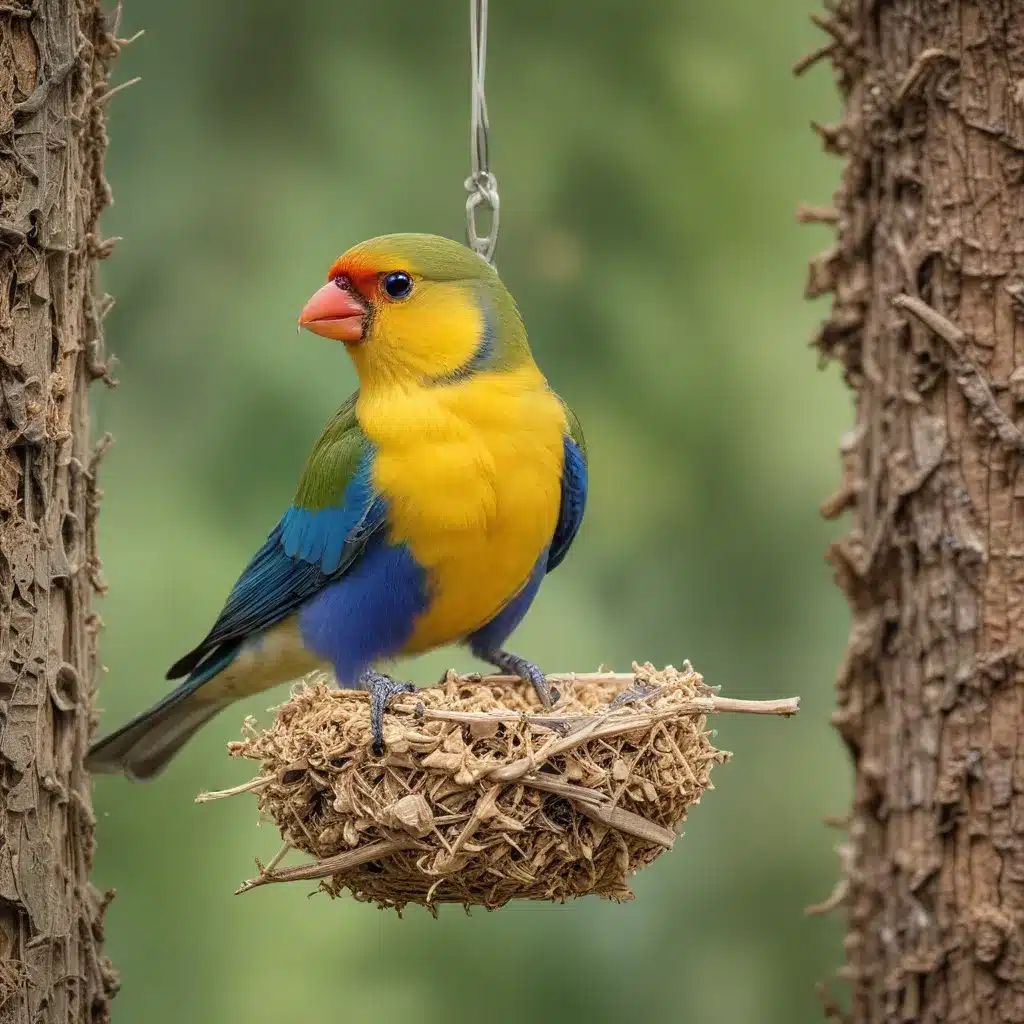
Developmental Stages in Birds
As an experienced avian caretaker, I understand the critical importance of meeting the unique nutritional needs of birds throughout their lifespan. Each stage of a bird’s development – from hatchling to juvenile to adult – requires specialized dietary considerations to support optimal growth, health, and longevity.
Hatchling Nutrition
Newly hatched chicks are delicate and vulnerable, relying entirely on their parents or caregivers to provide the right balance of nutrients. During this crucial stage, hatchlings need a diet rich in proteins, fats, vitamins, and minerals to fuel rapid development. Offering a high-quality, easily digestible hand-feeding formula is essential, ensuring chicks receive the necessary macronutrients and micronutrients for strong bone formation, feather growth, and organ maturation.
Juvenile Growth and Feeding
As birds transition into the juvenile phase, their nutritional requirements shift to accommodate accelerated growth spurts and increased activity levels. Juvenile birds require a diet higher in calories and protein to support muscle development, skeletal strengthening, and the emergence of their adult plumage. Providing a balanced mix of seed varieties, fresh fruits and vegetables, and occasional protein-rich insects or small rodents can help juveniles thrive during this formative period.
Adult Maintenance
Once birds reach adulthood, their dietary needs tend to stabilize, focused more on maintaining overall health and supporting longevity. Adult birds typically require a diet lower in protein and higher in fiber to support a slower metabolic rate and healthy digestive function. A varied diet of high-quality seed blends, leafy greens, and occasional treats can help adult birds maintain optimal body condition and immune function.
Bird Feeding Protocols
Crafting customized feeding protocols for birds at different developmental stages is crucial for their well-being. As an expert avian caretaker, I’ve developed a deep understanding of the specialized dietary requirements for birds.
Specialized Dietary Requirements
Each bird species has unique nutritional needs based on their natural habitat, foraging behaviors, and evolutionary adaptations. For example, nectarivorous birds like hummingbirds require diets high in simple sugars to fuel their rapid metabolisms, while raptors need a diet rich in protein and healthy fats to support their active hunting lifestyles. Addressing these species-specific requirements is essential for maintaining optimal health.
Customized Feeding Regimens
Beyond species-level considerations, individual birds may have their own unique dietary preferences and sensitivities. Some birds may thrive on a seed-based diet, while others may require a more varied menu of fresh produce, grains, and proteins. Closely monitoring a bird’s response to different food items and adjusting the feeding regimen accordingly is key to ensuring they receive the nutrients they need.
Monitoring Nutritional Intake
Regularly assessing a bird’s body condition, fecal output, and overall behavior can provide valuable insights into their nutritional status. Tracking the consumption of different food items and making adjustments as needed helps ensure birds are receiving a balanced and appropriate diet for their developmental stage and individual needs.
Avian Anatomy and Physiology
To craft truly customized diets, it’s essential to have a deep understanding of avian anatomy and physiology, particularly as they relate to nutrient absorption and energy utilization.
Digestive System Adaptations
Birds possess highly specialized digestive systems, with features like gizzards, crop pouches, and rapid gastrointestinal transit times. These adaptations allow birds to efficiently process a wide range of food items, from seeds and fruits to insects and small prey. Accounting for these unique anatomical features is crucial when designing optimal feeding protocols.
Nutrient Absorption Mechanisms
The avian digestive system is engineered to extract maximum nutritional value from the available food sources. Birds have evolved specialized mechanisms for nutrient absorption, such as the ability to break down complex carbohydrates, metabolize proteins more efficiently, and selectively absorb essential vitamins and minerals. Understanding these physiological processes can inform the selection of appropriate dietary components.
Energy Expenditure Dynamics
Birds often have remarkably high metabolic rates, driven by the demands of flight, foraging, and other energetically costly behaviors. Calculating the appropriate caloric intake to match a bird’s energy expenditure is essential for maintaining optimal body condition and preventing nutritional deficiencies or imbalances.
Ecological Considerations
When crafting customized diets for birds, it’s important to also consider the ecological context in which they exist, as this can significantly impact their nutritional needs and food preferences.
Foraging Behaviors
Different bird species exhibit a wide range of foraging behaviors, from ground-dwelling granivores to aerial insectivores to nectar-sipping hummingbirds. Recognizing these unique foraging strategies and the types of food sources they naturally encounter is crucial for replicating their dietary requirements in captive settings.
Habitat-Specific Food Sources
The availability and composition of food resources can vary dramatically based on a bird’s natural habitat. For example, birds living in tropical rainforests may have access to a greater diversity of fruit, nectar, and invertebrate prey compared to those in arid desert environments. Tailoring diets to mimic the nutrient profiles of a bird’s native food sources can help ensure their nutritional needs are met.
Seasonal Dietary Shifts
Many bird species undergo significant dietary changes in response to seasonal fluctuations in food availability and their own physiological requirements. For instance, some birds may shift from a seed-based diet during the breeding season to a more protein-rich diet during molting to support feather growth. Acknowledging and accommodating these seasonal dietary shifts is essential for maintaining the health and well-being of captive birds.
By deeply understanding the unique nutritional needs of birds at different developmental stages, as well as the intricate relationships between avian anatomy, physiology, and ecology, we can craft customized feeding protocols that truly support the long-term health and well-being of our feathered companions. At Mika Birds Farm, we are committed to providing our avian residents with the finest, most thoughtfully designed diets to ensure they thrive, from hatchling to adult. Through our rigorous research, personalized feeding plans, and continuous monitoring, we strive to set the gold standard for avian nutrition and care.


